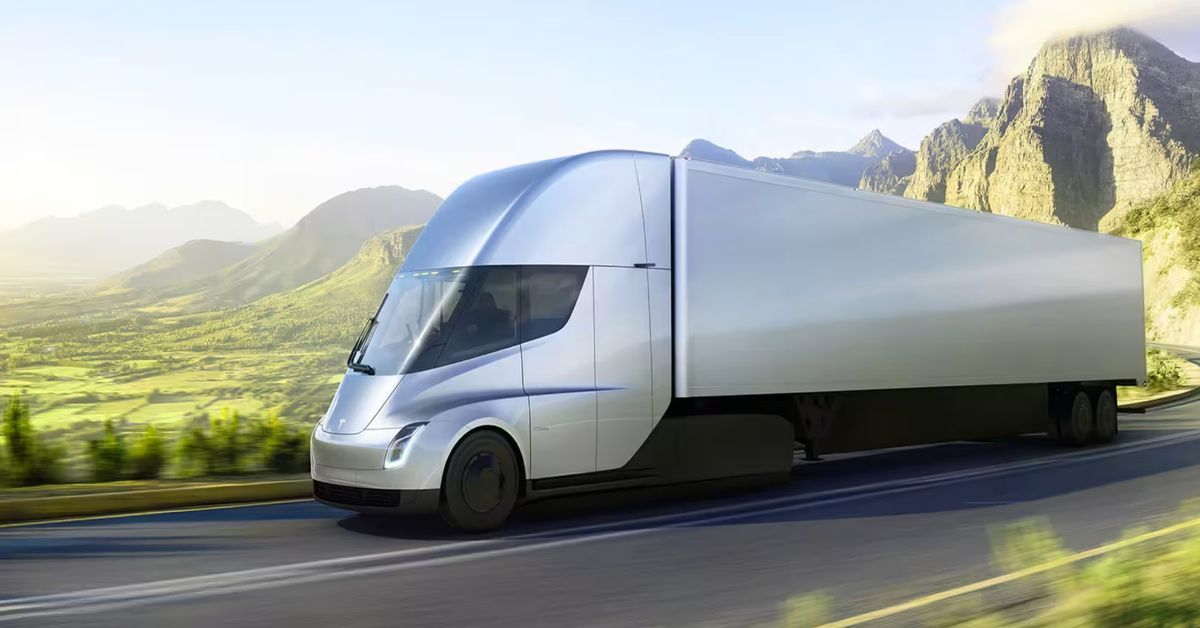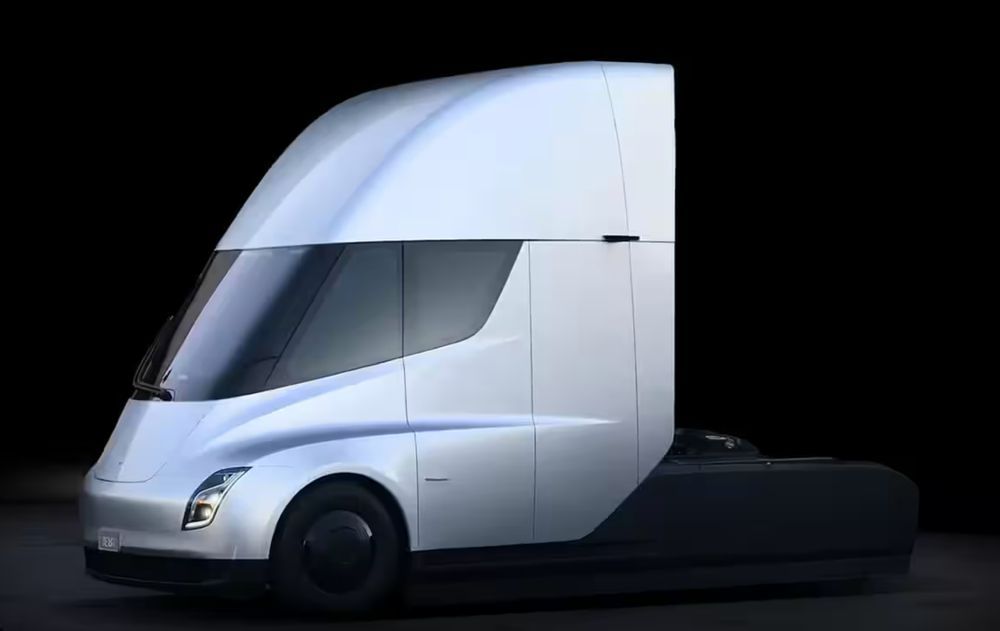Tesla has been working on the forefront of electrification of vehicles since their inception in 2003. In the relatively brief time span that they have been in business, the company has worked to increase the number of alternatively fueled vehicles on the road in an attempt to reduce global emissions and reliance on fossil fuels.
After capturing over 23% of the battery-electric and 16% of the plug-in and hybrid market for vehicles, it makes sense that the company would continue to expand towards even more commercial-centric use. With the creation of the Tesla Semi, the company is hoping to continue to revolutionize one of the most important markets - the commercial transportation of goods.
Introduced via two concept models back in November 2017, it seems that the Tesla Semi is finally coming to fruition, as CEO of Tesla Elon Musk recently hinted at dates for the release of the trucks. With over six years of design time put into the Semi, the long-awaited final production model will be coming in 2023!
Let’s take a closer look at the upcoming Tesla Semi!
The Tesla Semi Truck: History, Hints, And Finally A Date!
Back in 2016, Tesla mentioned plans to create an electric semi in their “Master Plan” for the company. At the time, they expressed that they had a working prototype, but that there were issues. For one, the truck used a “bunch” of Tesla Model 3 motors, which was not a plausible long-term solution for power.
During a TED talk in April of 2017, Musk presented the first images of the new truck, which he hinted would be revealed in September. From there, Jerome Guillen took the lead on the project. Shortly after, a bit later than the anticipated September, in November 2017, the Semi was unveiled at a press conference. Musk made claims that the truck would demonstrate big savings on gas consumption and would cost at least twenty cents less per mile to operate than a diesel (when charged at a Megacharger, where Tesla would promise a price of seven cents/kWh in the United States).
Pre-orders for the Tesla Semi began rolling in after the press conference reveal and by mid-January of 2018, around 450 had been pre-ordered with a deposit that jumped from the $5,000 originally required up to $20,000 after the November event. By quarter one of 2018, Tesla claimed around 2,000 pre-orders for the Semi had accumulated.
In June of 2019, Tesla called for production to begin by the end of 2020 and even reiterated this goal a few months later in October of 2019 during an investor call (but limited the numbers). In mid - January of 2020, Tesla announced a winter test program to ensure the Tesla Semi could operate under cold weather and low-traction environments.
After testing, Musk expressed concerns that the battery supply might not be adequate for the truck. During this same timeframe, Musk took the Semi on popular television program, Jay Leno’s Garage, and it once again caught the public eye. After the show aired, Tesla revealed that they had now accumulated over 250,000 reservations for the Semi.
In January of 2021, Tesla unfortunately announced that the Semi production would be delayed until the end of the year while they produced new batteries for the truck. Later the same year, Tesla revealed to shareholders that they were once again delaying production and that it would no longer start in 2021, but more likely would begin in 2023.
Finally, after much hinting and delay, on April 7, 2022, Musk confirmed at the Tesla Cyber Rodeo event that the Tesla Semi will begin mass production in 2023, stating “We’ll be in production with Cybertruck next year… So that’s all coming. This year is all about scaling up, and then next year there’s going to be a massive wave of new products.”
The announcement comes as great news for many businesses who have pre-ordered large quantities of the Semi (some of which have received just a handful already) including PepsiCo, who placed an order for 100, Walmart, who ordered 130, and Pride Group Enterprises, who ordered 150. With such big names waiting to add the Semi to their fleet, it stands to be an incredibly profitable and growing market for Tesla, as long as they deliver on their promised production timeframe.
Specifications And Features Of The Tesla Semi
The base version of the Tesla Semi will cost around $150,000 and can travel up to 300 miles in a charge. The truck is also available in a 500-mile range variant which costs $180,000. Prototypes of the Semi saw Tesla boasting acceleration from 0-60 MPH in five seconds when unloaded and twenty seconds fully loaded. Some more recent estimates on range show that the 500-mile variant is actually regularly capable of closer to 600 miles on a charge.
Although the Semi prototype claimed the truck would be capable of keeping a speed of 65 MPH on up to 5% grade, the production model claims a reduced 60 MPH capability. The Tesla Semi comes standard with a warranty that covers the truck for up to one million miles. Tesla has also boasted that the truck will have lower maintenance costs and easier, simpler maintenance when compared to a diesel version.
With a centered driver’s seat, removable jump seat for passengers, and no sleeping area, the Tesla Semi does have some quirks that may take some getting used to by seasoned drivers. However, the “explosion proof” windshield, updated technology found in touchscreen displays located on both sides of the steering wheel that replace standard instrument panels, and standard Enhanced Autopilot with semi-autonomous capability, more than make up for any initial awkwardness in driving it.
With claims that the Tesla Semi will be able to prevent jackknifing, keep drivers in their lane, monitor distance from other vehicles, and has more safety features than any other truck on the market combined with the lower cost and plans to continue to update the truck in the future, Tesla has created a potentially game-changing vehicle.



